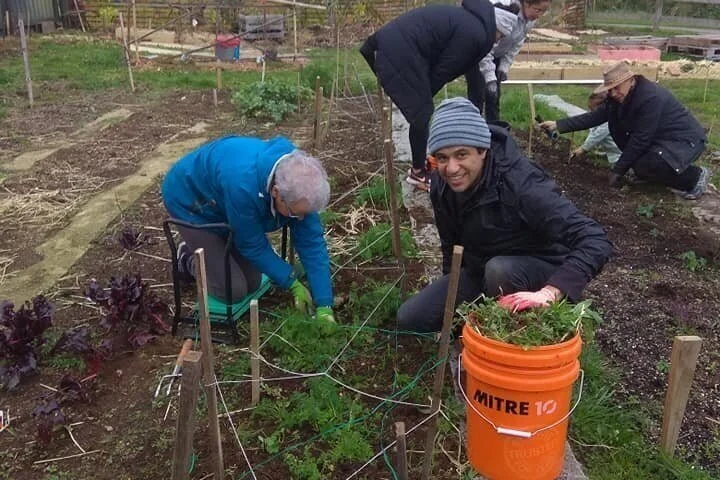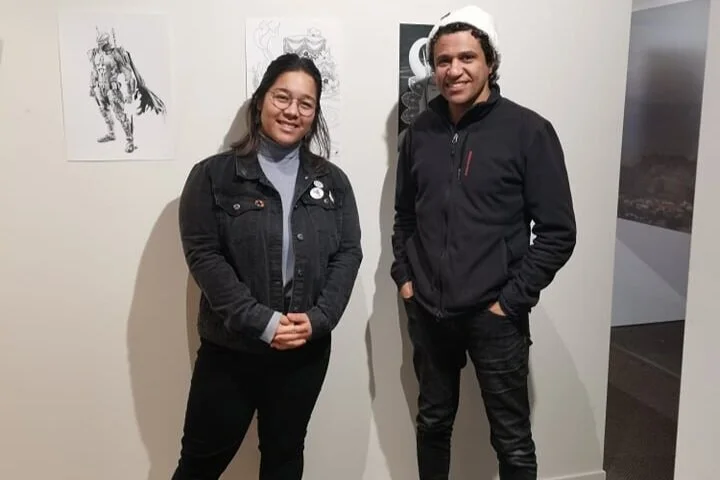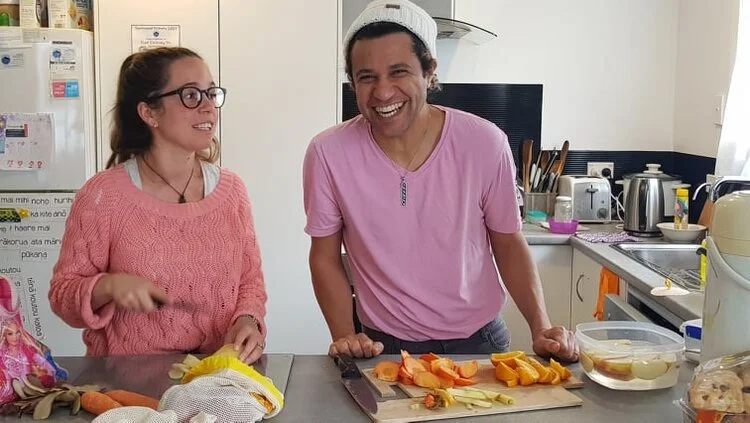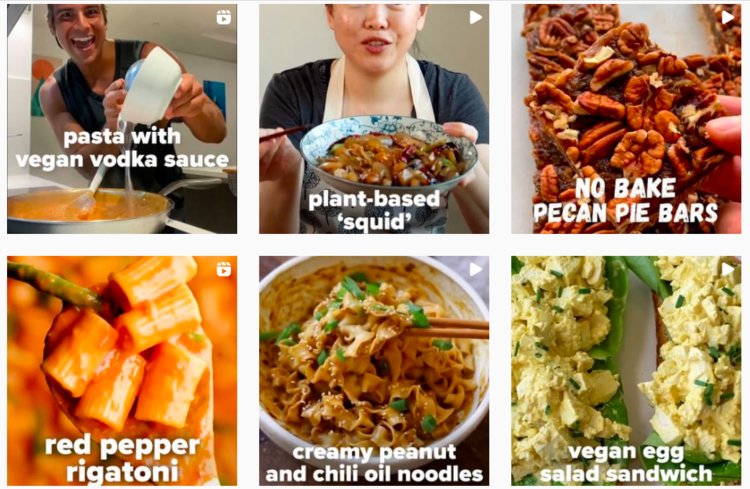Hamāda's plant-based journey
Interviewed by Elvisa Van Der Leden and words by Brittany Ryan
Hamāda’s journey started 15 years ago when he first attempted to become vegetarian, but the turning point was in March of 2020 during lockdown when he slowly cut out milk and realised that he no longer felt lethargy and discomfort. He decided to keep going and, two months later, he adopted a fully plant-based diet. He’s been going strong with his new diet ever since and isn’t looking back. Read on to learn how and why he started making changes and find resources to kickstart your journey.
What is a plant-based diet? According to the Harvard Health Blog, “plant-based or plant-forward eating patterns focus on foods primarily from plants. This includes not only fruits and vegetables, but also nuts, seeds, oils, whole grains, legumes, and beans.”
Hamāda Eleleimy volunteers at Spotswood Primary’s breakfast program, he works with a junior youth group and runs a children’s virtues class on Sundays. He also has three children and a full-on family life. His story is inspiring and informative for those who may wish to start transitioning to a plant-based diet.
Hamāda lending a hand weeding at the Marfell Community Garden during a biweekly Sunday afternoon working bee.
Real reasons why we as humankind need to switch to plant-based
David Attenborough’s latest release, Breaking Boundaries, tells the story of the most important scientific discovery of our time: that humanity has pushed Earth beyond the boundaries that have kept Earth stable for 10,000 years, since the dawn of civilization.
The Planetary Boundaries Framework, which outlines nine key processes, influenced by humanity, that threatens the stability of the entire Earth System.
These are climate change, biosphere integrity (functional and genetic), land-system change, freshwater use, biogeochemical flows (nitrogen and phosphorus), ocean acidification, atmospheric aerosol pollution, stratospheric ozone depletion, and release of novel chemicals.
It is very clear that a global shift towards a plant-based diet and, more specifically, towards eliminating mass farming that doesn’t meet environmental standards, will occur during this century to avoid environmental catastrophes and the worst impacts of climate change. The scientific conclusion is to go plant-based and go solar, which can be accomplished simultaneously.
Why Plant-based?
Adopting a plant-based diet doesn’t happen overnight, at least it didn’t happen that way for Hamāda. “I’m not trying to boil the ocean,” he says. However, his journey serves as the top of the “V” in the flying formation for most who are heading in the same direction.
Inspired by films like The Game Changers, Cowspiracy, and Forks Over Knives that demystify the need for meat, and also becoming more sensitive to how his body felt after certain drinks or meals, he slowly started to remove all animal products from meal preparations. He was especially influenced by men and even large-sized athletes who maintain plant-based diets.
First, he decided to only buy free-range meat after watching documentaries that expose the horrors of intensive animal farming and the negative environmental and human health impacts of consuming high quantities of meat.
“I’ve cut meat, so now what am I going to eat? Food is not going to have any taste,” he worried. Meat was a regular consumption and often the focus of every meal.
However, he soon realised that cutting meat saves money. It also simplifies food preparation as he doesn’t have to worry about cross-contamination or if something is fully cooked. Composting is easier, as his worm warm is also vegetarian, and his family’s overall kitchen waste is cut down.
Hamāda was interviewed by Elvisa on our Talking Taiao podcast to inspire others to transition to a more plant-based diet.
He has since adapted his old favourite go-to recipes, such as his amazing baked pasta with mince and white sauce by using soy milk instead of cow’s milk, half-boiled lentils instead of beef, and seasoned chopped tomatoes. Onions, fresh herbs, and seasoning can really elevate a dish without having to add meat. Just ask Jamie Oliver, and browse his Ultimate Veg.
It’s not a punishment to go vegan, he assures Elvisa in his interview.
He searches for new recipes online and found a pastime in finding inventive ways of making favourite foods without traditional ingredients. Chickpeas, red kidney beans, lentils, and black-eyed peas are household staples.
Hamāda and Emere Lietch-Munro preparing the kai for the Sunday children’s class.
Vegan resources for those who wish to start moving in this direction
We recommend following get.plant.ed on Instagram.
Vegan resources are ubiquitous, and with a simple search, recipes that are delicious and (usually) healthy alternatives are found in seconds. Most adults (around 65–70% of the world's population) are lactose intolerant, and calcium is obtained through common sources like broccoli and leafy green vegetables, oranges, almonds, Brazil nuts, and dried beans, and tofu. Think colourful meals, and achieve this by adding 5 or 6 different vegetables or nuts in a dish. More variety makes it a lot healthier and more exciting.
Check out our Sustainable Food local resource guide.
Why plant-based is better for the environment and the economy
In addition to health and the environment, economic reasons also come into play. Free-range is more expensive, so eating meat becomes a luxury. Prior to switching to plant-based, Hamāda’s family would alternate vegetarian and meat days, and replaced chicken or steak for cheaper options like butter, dairy, or eggs to make up for the lack of meat.
Call to action
Whether it’s becoming aware of your body and how food makes you feel, saving on grocery bills, or rising to the call of an industry injustice, everyone can and should eat more plants more regularly. Small steps in the same direction will all get us there, and taking inspiration from Hamāda, who has transitioned and challenged himself, instills hope for every one of us.




